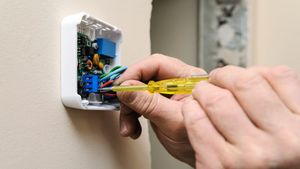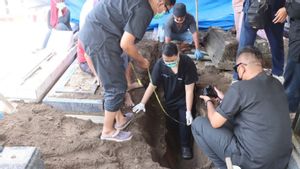YOGYAKARTA - Mastoid checks are an important medical test to do. Mastoids are part of the temporal bone located behind the ear, which has a pyramid-like shape. Although small, the massoid plays a role in maintaining the health of the ears and body's balance.
In terms of anatomy, the mastoid bone is formed with many air cavities connected to the mid-ear channel. The mastoid area also functions as a place for the attached muscles of the neck and head. That is why the mastoid examination is an important step in ensuring the overall health of the ears and body balance.
The existence of problems in the massive bone can have a major impact on hearing and other conditions. Regular mastoid checks help detect a person's health early. So what are the mastoid examination techniques like and their functions?
Health problems can attack in the massoid bone area, such as mastoiditis (infection in mastoids), mastoid tumors, and other disorders. Therefore, mastoidal examination becomes a medical check-up that should not be ignored.
The mastoid examination aims to evaluate the health of the individual's ears and body balance. This medical procedure can be followed both for people who experience symptoms in their ears and those who do not feel it.
By undergoing a mastoid examination, you can find out the condition of ear health so that you can take proper treatment steps. Here are the techniques for mastoid checks that you need to know:
The first method of mastoid examination is visual inspection. Doctors or medical personnel will examine the patient's mastoid area to see swelling, redness, or skin wounds.
If there is a change in the skin or mastoid structure, it can show problems in the area. It is possible that the patient has an infection or tumor in the mastoid section. The doctor will also carry out an overall ear examination, starting from observing signs of fluid, inflammation, to blockages that interfere with the ear function.
Palpasi mastoid is an examination technique carried out by doctors by touching the mastoid area. Doctors use their fingers to touch the mastoid area to assess the texture, size, and sensitivity of the mastoid.
Problems in the mastoid area can be known from swelling, pain, pressure, or deformity. The doctor will also conduct an examination of the lymph nodes in the neck to find out if there is an enlargement related to the mastoid problem.
SEE ALSO:
Another mastoid examination technique that patients also undergo is audiometry. This medical procedure is in the form of hearing tests to measure a person's ability to listen to sounds clearly.
In the audiometry method, the patient's hearing ability is also tested in distinguishing between the various sound frequencies. With this examination, doctors can diagnose whether there is hearing loss, such as fluid in the middle ear or damage to the hearing bone.
Patients undergoing mastoid examination can also do a balance test. This examination technique includes a series of tests designed to evaluate the vestibular function, which is responsible for the balance of the body.
The balance test in the mastoid examination can be in the form of a Romberg test, a Dix-Hallpike test, or a nystagmus test. Through this test, doctors can take into account whether there are problems in the massoid area that affect a person's body balance.
Demikianlah reviewasi mengenai teknik pemeriksaan mastoid dan fungiannya. Melalui berbagai metode pemeriksaan mastoid di atas, pasien bisa mendapatkan pengeraman yang holistik tentang kesehatan ear dan equilibria tubuhnya. Baca juga memalikan check-up mata dan jenis-type tes penglihatan.
Stay up to date with the latest domestic and other overseas news on VOI. We present the latest and updated information nationally and internationally.
The English, Chinese, Japanese, Arabic, and French versions are automatically generated by the AI. So there may still be inaccuracies in translating, please always see Indonesian as our main language. (system supported by DigitalSiber.id)


















